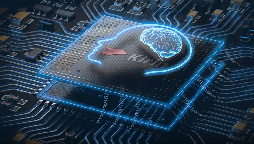Umakant Soni
OpenAI raised a massive $6.6 billion VC round, valuing the company at $157 billion. Sam Altman recently wrote a blog post discussing the “age of intelligence”. While he may not be correct about the exact time this might arrive in full force, he is right about the direction of change. In the age of AI, we will be forced to reimagine almost all spheres of our lives. Ironically, as we have started to lament that humans are becoming more machine-like and machines are becoming more human-like, we must ponder an important question: What is the deeper meaning and purpose of the term “being human?” Right now, it only reminds us of the fancily priced T-shirts being sold by Bollywood actor Salman Khan’s foundation.
Technology Shift And How It Changes How We Live And Work
Every time there is a significant shift in technology, it has profoundly changed our civilisation in terms of how we live and work. When humans learned to grow crops, enabling them to create food regularly, and invented the wheel, allowing them to transport excess food for trade with others, they began forming settlements, which became villages. Villages allowed human society to evolve into the complex structures we still see today. In agricultural society, the ability to work hard with one’s hands was critical, so physical strength was rewarded.
When the Industrial Revolution occurred, large industrial cities like London and Manchester emerged, powered by thousands of not just strong men but also women and children, who could contribute to work, as machines were easier to operate. Thus, skills to operate and work with physical machines were rewarded.
In the digital age, we managed to build the internet, connect ourselves with emails and social media, and work. Software parks sprang up, drawing large numbers of IT workers to gather in cities like Silicon Valley or, closer to home, in Bangalore. Knowledge became power, so people spent effort acquiring knowledge in schools and traded it with others via IT/digital companies for money.
In the Intelligent Age, with the rise of AI, we are going to see the reintegration of work and living in a way we have not seen before. Instead of large industrial plants, with 3D printing and precision manufacturing, we might see working and living spaces coming together. The use of intelligence enables physical objects (cars, robots, and machines) to move and work autonomously. This would give rise to future cities, where 40-50% of workflows would be driven by AI. In these AI future cities, which could be energy-sustainable, almost everything from manufacturing to healthcare to education to financial services would be reimagined with intelligence. Being intelligent, or putting effort into being more intelligent, may not matter much, as an enormous amount of machine intelligence would be available on tap, helping us automate work that consumes almost 60-70% of our time today, according to a report from McKinsey research.
The Rise Of The Scrollohuman?
AI will lead to enormous productivity gains through the democratisation of intelligence, and it might end up giving us an extra day or two in the week. It would be interesting to explore what humans would do with that extra day.
For a long time, we have burdened ourselves with work. From an early age, it’s drilled into our heads that, in this scarce world, we must survive by working almost 10-12 hours every day. All our education is primed to enable us to work usefully in society. We force ourselves to wake up every morning with shrill alarms, drink endless cups of coffee to keep going, and eventually take pills to fall asleep, muting our bodies’ natural self-regulating system of healing. We create and then struggle to deal with traumas of all kinds, chasing fictional things like fame and money to appear important in the eyes of others, while assuming that mindless work is providing critical meaning to our lives.
AI’s increasing abilities promise to reduce the burden of work for fulfilling basic needs, yet the trend of time spent on smartphone usage is growing exponentially. Currently, an average person spends close to a whopping 3 hours and 15 minutes per day doomscrolling. Psychologists are starting to warn of the doomscrolling pandemic, with an increasingly vicious cycle of sophisticated AI algorithms and engagement-driven social media business models. This makes one wonder: Will we spend that extra day of AI-driven productivity doomscrolling our Instagram reels, WhatsApp forwards on steroids, or binge-watching Netflix? Could the allure of receiving an endless stream of dopamine hits, in the time now available, slowly suck us into “The Matrix”?
Machines Are Evolving. Can We Too?
Almost a century ago, Sri Aurobindo, in his famous book on “Integral Yoga”, discussed how we would evolve into a supra-conscious species, focused on a deeper exploration of the human self. When I read his book almost 20 years ago, during a visit to Auroville, I couldn’t understand his concept of the human being as a transient form. In the last 15 years, while chasing the evolution of AI as an entrepreneur, investor, and policy-maker, I have realised that while Elon Musk famously talks about machines gaining consciousness, we haven’t really explored or understood the beauty of human consciousness – something Sri Aurobindo emphasised.
We have hardly taught our children the concepts of working with human emotions, empathy, the concept of self, the nature of reality, compassion, and service in our schools. The military and industrial might of the USA and China could give humanity the gift of working with AI. However, the answers to “Being Human” in the Intelligence Age could very likely lie on the banks of the Ganges. AI’s real potential could be a societal transformation that creates a new type of human civilisation based on unity, peace, and spiritual truth, replacing the current systems based on ego, division, and materialism. Can we be true pioneers, courageous enough to embrace that journey to become truly human?


